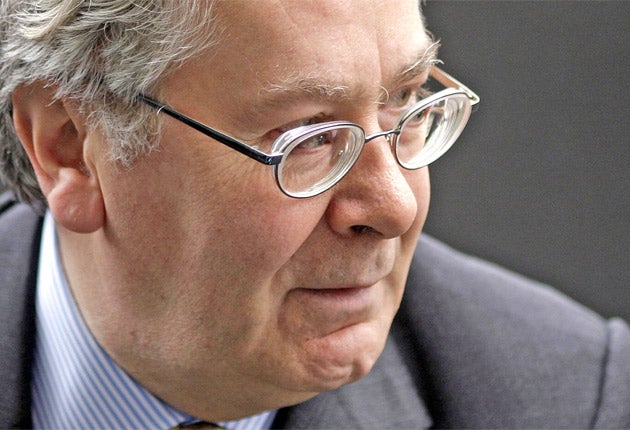King wavers on interest rates as inflation hits 4 per cent

Soaring petrol prices, a sharp rise in the cost of alcohol and the hike in VAT to 20 per cent all pushed inflation to an 18-month high in January of 4 per cent, the Office for National Statistics reported yesterday. That was up from 3.7 per cent in the year to December. The ONS confirmed that petrol is now at an all-time high of £1.27 a litre.
As required by statute when inflation strays more than 1 per cent from the 2 per cent target for three months, the Governor of the Bank of England, Mervyn King, has written an open letter of explanation to the Chancellor George Osborne.
Mr King again blamed external factors for the acceleration in inflation and alluded to the increasingly bitter debate within the Bank's Monetary Policy Committee: "I do not wish to conceal that there are real differences of view within the committee, reflecting different judgements about the risks to that outlook."
City economists also took from his letter a hint that the Bank might raise rates in line with market expectations – suggesting a hike as early as May. Mr King stressed the uncertainties on both sides: "Every member of the committee is conscious that there are large risks in both directions. And no one should be in any doubt that when the balance of risks requires it, every member of the committee is determined to act to adjust policy in order to bring the risks back into balance."
In reply, Mr Osborne wrote that commodity prices had been "a key driver of recent UK inflation".
Ominously for policymakers, underlying or "core" inflation also edged up in January, indicating that there may be more domestically generated price rises taking hold. The UK's inflation is also high by international standards – the sixth highest among 27 EU states.
Economists warned that inflation is likely to rise still further, probably peaking at around 4.3 per cent in February, and will remain well above 2 per cent for at least another year. The Bank reveals its latest inflation and growth forecast in its quarterly Inflation Report today and Mr King has already warned that inflation will reach between 4 and 5 per cent this year.
While the January number was well in line with City expectations, the financial markets fully expect a rise in the Bank Rate from 0.5 per cent to 0.75 per cent in May, with tracker and variable-rate mortgages also increase.
This would mean a rise of about £40 in the monthly bill of the average British mortgage holder. Rates of 1.25 per cent by the end of the year have already been "priced in" in financial circles and will transmit rapidly to the 68 per cent of the mortgage stock at floating (tracker and standard variable) rates.
Though any rise might be modest in absolute terms, it comes as household budgets are facing an unprecedented squeeze from tax hikes and inflation and could have a catastrophic psychological effect on an already fragile housing market.
On the older Retail Price Index (RPI), which includes rents and mortgage bills, prices rose by 5.1 per cent on a year ago, up from 4.8 per cent in January. Apart from a brief spike in prices in 2008, the RPI inflation has not been this high since 1991. It is still the benchmark used widely in pay negotiations, although in April the Government will switch to the CPI for the uprating of benefits.
Pensioners and poorer households are being hit hardest by rising prices, as a greater proportion of their income is spent on the kind of day-to-day essentials that have risen rapidly in recent months – such as food, clothing, petrol, public transport and gas and electricity bills. Those who enjoy an occasional drink or cigarette will have been squeezed especially hard.
Age UK says the over-55s are an average of £30 per month worse-off as a result of the rise in prices since September. And since January 2008 the average person aged 55 and over has experienced price increases at 5 per cent above headline inflation. The continuing impact of low mortgage interest rates has little benefit for those in later life but energy and food matter more.
The Coalition has guaranteed to increase pensions in line with CPI rather than pensioner inflation.
When will rates rise?
May?
Markets expect a 0.25% raise to 0.75% by May. Variable and tracker mortgages will also rise as a result.
August?
The markets expect a further 0.25% hike to 1%, adding to pressure on the housing market.
November?
The anticipation is that rates will be 1.25% by the end of 2012, with grim consequences for homeowners.
Subscribe to Independent Premium to bookmark this article
Want to bookmark your favourite articles and stories to read or reference later? Start your Independent Premium subscription today.

Join our commenting forum
Join thought-provoking conversations, follow other Independent readers and see their replies